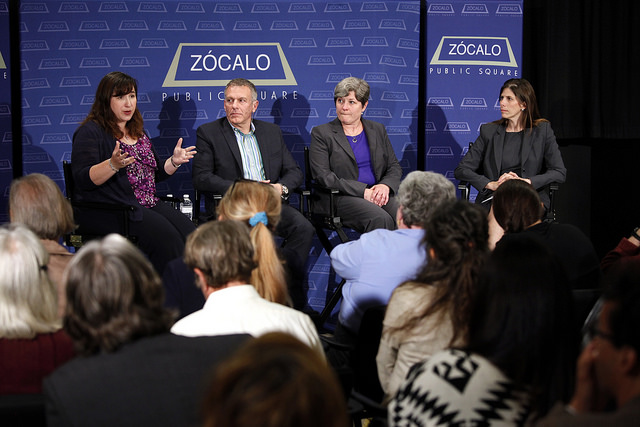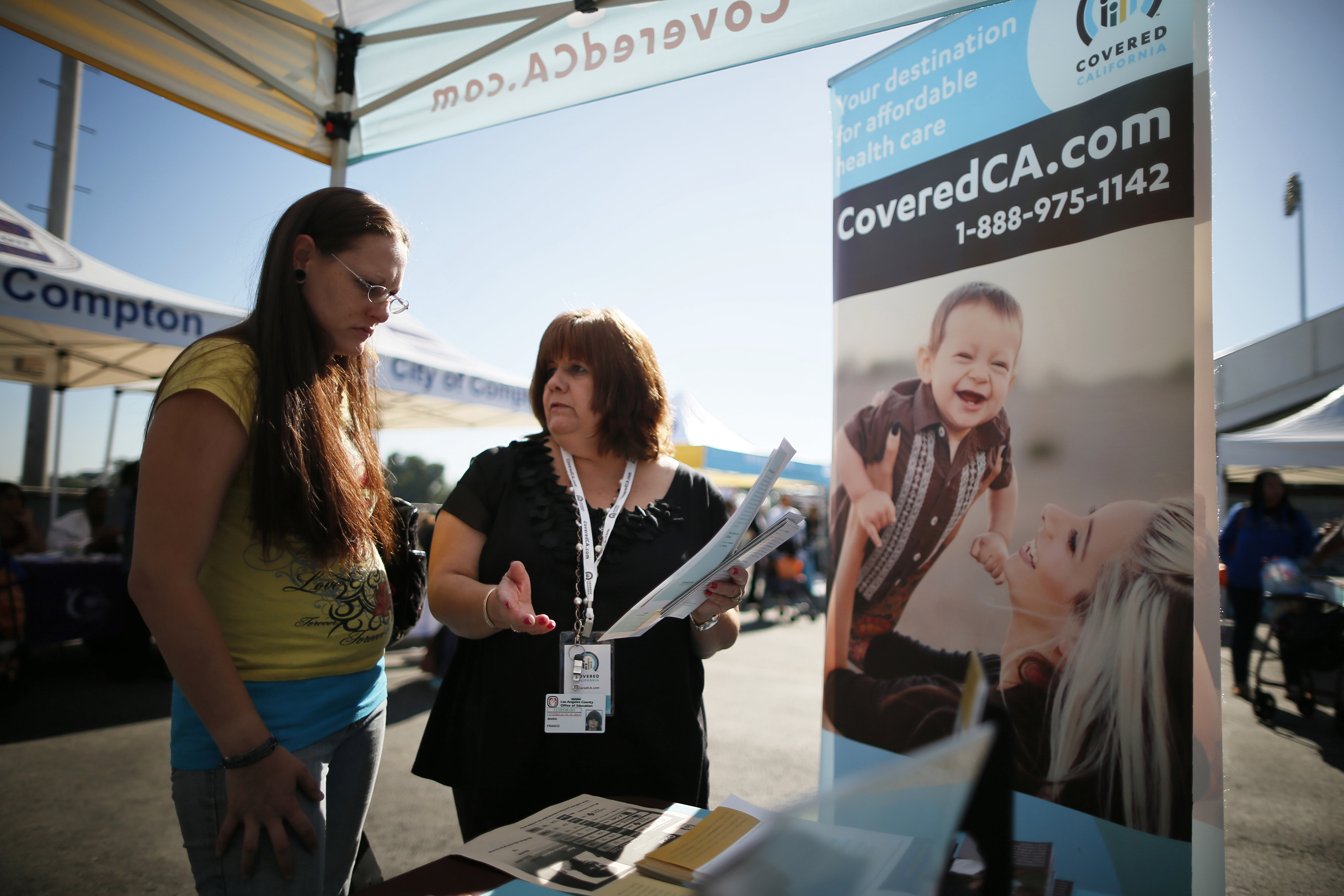
It’s still early to evaluate all the impacts of the Affordable Care Act (ACA) on Los Angeles and its immigrants, but public perception of and conversation about the law are driving huge changes both in Southern California and throughout the country, said panelists at a Zócalo Public Square event, co-presented by The California Wellness Foundation, at the Goethe-Institut Tuesday night.
Responding to questions from the moderator, Kaiser Health News senior correspondent Anna Gorman, those panelists—St. John’s Well Child and Family Center CEO Jim Mangia, National Immigration Law Center health policy attorney Gabrielle Lessard, and UCLA Center for Health Policy Research health insurance studies director Shana Alex Lavarreda—described emerging evidence of what Mangia called a new “culture of coverage.”
Immigrants who are eligible for coverage and care are starting to get it. And even undocumented immigrants, who are excluded from the benefits of Obamacare, are more likely to seek treatment as a result of the publicity on the law and focus on health issues, Mangia said. Many of those who are now seeking coverage have avoided or been unable to afford healthcare in the past, which creates opportunities for significant gains in public health.
“We are beginning to create a culture of access,” Mangia said. “I think the increased access as a result of the ACA is going to have an impact. I do believe that we’re getting much closer” to having healthcare access for all, but “we still have a ways to go.”
At the same time, public perceptions of Obamacare also represent obstacles. Lavarreda, whose UCLA center does extensive polling of Californians on health issues, said she had encountered many people—immigrants and non-immigrants—who are given reliable information about their eligibility for coverage but simply do not believe it. “There’s this barrier of, ‘Even if it exists, it doesn’t apply to me,’” Lavarreda said.
Lavarreda noted that before the ACA, only 15 percent of the uninsured in California were non-citizens without green cards, according to surveys. With the undocumented excluded from coverage, estimates are that the uninsured population will be about 25 percent undocumented.
And since so many families are mixed—where some members are citizens or have legal status and others are undocumented—fear of federal deportation may make it hard to get even eligible immigrants to sign up. Would undocumented people be willing to enroll their eligible children and relatives—or balk, fearing the scrutiny of federal authorities? Lavarreda called this “an indirect chilling effect.”
National Immigration Law Center health policy attorney Gabrielle Lessard said it was an “ironic situation,” with the Obama administration “working at cross purposes” as it tries to enroll immigrants in health insurance while carrying out mass deportations that discourage enrollment.
Asked whether immigration reform, if enacted, could change anything, Lessard said that the federal bills with the most support wouldn’t do much to expand eligibility because they include so many restrictions and delays on healthcare benefits for people who could gain legal status.
Mangia, the CEO of St. John’s, a network of clinics, said the law had devoted billions in new dollars to community health centers, and that the ACA should be seen as a leverage point for new state and local efforts to expand access to healthcare. He argued that L.A. County should triple the size of its Healthy Way L.A. program in order to cover hundreds of thousands of undocumented immigrants.
Demand for healthcare is surging and community centers are open to all, regardless of legal status or ability to pay. The St. John’s call center is fielding 6,000 calls a day, and patient volume in the centers has increased 40 percent in the past seven months. “There are a lot of folks who are undocumented who understand they can have access to care now,” he said. “We’re seeing this unbelievable pent-up demand.”
Lessard rattled off several problems that are making it hard for immigrants to get the coverage and care to which they are entitled. Translators are hard to find to help foreign language speakers with applications. To get tax credits to offset the cost of coverage, married couples must file jointly—but that’s an obstacle for immigrants whose spouses live in another country. And identification checks on the exchange, which reference a credit bureau database, can make it hard for immigrants and others without established credit history to buy insurance.
The panelists noted that California was doing more than most states to help immigrants, and they expressed support for a bill from state Senator Ricardo Lara to extend the benefits of Obamacare to the undocumented.
An audience member asked: What does L.A. have to do to its healthcare system to accommodate new people?
“The first thing that pops into my head is the need for more primary care providers,” Mangia said. Panelists said that training health professionals from other countries to work here would result in more dual-language and culturally competent care. They also suggested restructuring training and residency programs, and shortening the length of time people spend in medical school, as ways to provide more doctors and medical professionals and accommodate more people in the healthcare system.






Send A Letter To the Editors